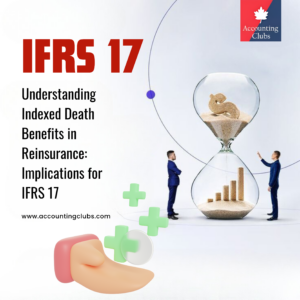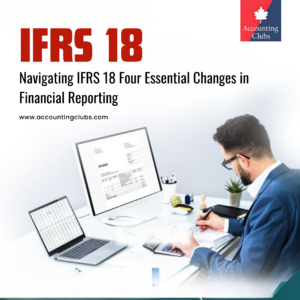Impact of Related Party Disclosures on Corporate Governance

The implementation of IAS 24, Related Party Disclosures, plays a crucial role in enhancing corporate governance by ensuring transparency and accountability in financial reporting. Related party transactions can pose significant risks to stakeholders due to the potential for conflicts of interest, favoritism, and non-arm’s length dealings. This article examines how related party disclosures mandated by IAS 24 impact corporate governance practices.
Enhancing Transparency
One of the primary objectives of IAS 24 is to ensure that entities disclose information about related party transactions, which helps stakeholders understand the potential implications of these transactions on the financial position and performance of the entity. By requiring detailed disclosures regarding the nature of relationships, transactions, and outstanding balances with related parties, IAS 24 enhances transparency. This transparency is vital for investors and other stakeholders who rely on financial statements to make informed decisions.

Mitigating Conflicts of Interest
Related party transactions often raise concerns about conflicts of interest, particularly when management or board members are involved. IAS 24’s disclosure requirements compel companies to reveal not only the existence of such transactions but also their terms and conditions. This level of disclosure helps mitigate potential conflicts by allowing shareholders and regulators to scrutinize transactions that may not be conducted at arm’s length. By shedding light on these dealings, IAS 24 promotes ethical behavior and discourages self-dealing among executives.
Strengthening Accountability
The requirement for comprehensive related party disclosures fosters a culture of accountability within organizations. When management knows that related party transactions will be publicly disclosed, they are more likely to act in the best interests of the company and its shareholders. This accountability extends to board members as well, as they must ensure that any related party transactions are properly vetted and disclosed in compliance with IAS 24. Consequently, this heightened accountability can lead to improved decision-making processes and governance practices.
Facilitating Regulatory Oversight
Regulatory bodies often rely on related party disclosures to monitor compliance with corporate governance standards. IAS 24 provides regulators with essential information that can be used to assess whether companies are adhering to best practices regarding related party transactions. By making this information readily available, IAS 24 enables regulators to identify potential issues early and take appropriate action when necessary.
Challenges in Implementing IAS 24
Implementing IAS 24, Related Party Disclosures, poses several challenges for entities seeking compliance with its requirements. These challenges stem from complexities in identifying related parties, measuring transactions accurately, and ensuring comprehensive disclosures. This article explores the key difficulties faced by companies when applying IAS 24.
Identifying Related Parties
One of the most significant challenges in implementing IAS 24 is accurately identifying related parties. The standard defines a related party as any entity or individual that has the ability to control or significantly influence another entity in making financial and operating decisions. This broad definition can complicate the identification process, particularly in complex corporate structures where relationships may not be immediately apparent. Companies must invest time and resources into understanding their organizational relationships thoroughly to ensure compliance with disclosure requirements.

Measuring Related Party Transactions
Once related parties are identified, entities face challenges in measuring the nature and value of related party transactions accurately. These transactions may not always occur at arm’s length; therefore, determining fair value can be complex. For example, if a company sells goods or services to a related party at a price that deviates from market rates, it must assess whether this transaction reflects fair value or if it requires adjustment for reporting purposes. Companies may need specialized knowledge or external valuations to ensure accurate measurement.
Ensuring Comprehensive Disclosures
IAS 24 mandates extensive disclosures regarding related party transactions, including the nature of relationships, types of transactions, outstanding balances, and terms and conditions. Ensuring that all relevant information is disclosed comprehensively can be burdensome for organizations, especially those with numerous related party interactions. Companies must establish robust internal controls and processes for gathering this information consistently across different departments and subsidiaries.
Navigating Jurisdictional Differences
Entities operating in multiple jurisdictions may encounter additional challenges due to varying local regulations regarding related party disclosures. While IAS 24 provides a framework for disclosures, local laws may impose additional requirements or differ in interpretation. Companies must navigate these jurisdictional differences carefully to ensure compliance with both international standards and local regulations.
The main risks associated with related party transactions
Related party transactions (RPTs) can present significant risks to organizations, stakeholders, and the integrity of financial reporting. While such transactions are common in business operations, they can lead to various complications that may undermine transparency and ethical practices. This article explores the main risks associated with related party transactions.
1. Conflicts of Interest
One of the most significant risks associated with RPTs is the potential for conflicts of interest. When transactions occur between related parties—such as between a company and its executives, board members, or major shareholders—there is an inherent risk that decisions may be influenced by personal interests rather than the best interests of the company. This can result in preferential treatment, where related parties receive more favorable terms than would be available in an arm’s length transaction, potentially harming minority shareholders and other stakeholders.
2. Fraud and Misappropriation of Assets
RPTs can create opportunities for fraud and misappropriation of assets. The lack of independent oversight in transactions between related parties may enable management to manipulate financial results or divert resources for personal gain. For instance, a company’s executives might engage in transactions that inflate profits or conceal losses by misrepresenting the terms of related party agreements. This risk is exacerbated when there are inadequate internal controls or oversight mechanisms in place to monitor such transactions.
3. Inadequate Disclosure and Transparency Issues
Another critical risk is the potential for inadequate disclosure of related party transactions in financial statements. IAS 24 requires entities to disclose information about related party relationships and transactions; however, compliance can be inconsistent. Failure to disclose relevant information can mislead investors and regulators about the true nature of a company’s financial position and performance. This lack of transparency can erode trust among stakeholders and lead to reputational damage.
4. Regulatory Compliance Risks
Related party transactions are subject to scrutiny by regulatory bodies due to their potential for abuse. Non-compliance with regulations governing RPTs can result in legal repercussions, fines, or sanctions against the entity involved. Companies must navigate complex regulatory environments that vary across jurisdictions, making it challenging to ensure compliance with all applicable laws regarding RPTs.
5. Impact on Financial Health
Transactions with related parties may not always reflect fair market value, which can distort an organization’s financial health. For example, if a company sells goods or services to a related party at below-market prices, it may report inflated revenues while simultaneously undermining profitability. Such practices can lead to an inaccurate representation of an entity’s financial performance, affecting investment decisions and potentially leading to financial instability.

6. Audit Risks
The presence of related party transactions increases audit risks significantly. Auditors may face challenges in identifying and evaluating RPTs due to their complexity and potential for concealment by management. The risk of material misstatement in financial statements is heightened when auditors cannot obtain sufficient appropriate audit evidence regarding these transactions. Moreover, management override of controls related to RPTs poses additional challenges for auditors seeking to ensure accurate reporting.
Conclusion
The impact of related party disclosures under IAS 24 on corporate governance is profound. By enhancing transparency, mitigating conflicts of interest, strengthening accountability, and facilitating regulatory oversight, these disclosures contribute significantly to improving corporate governance frameworks. As entities strive for compliance with IAS 24, they not only fulfill their reporting obligations but also promote a culture of integrity and trust among stakeholders.











